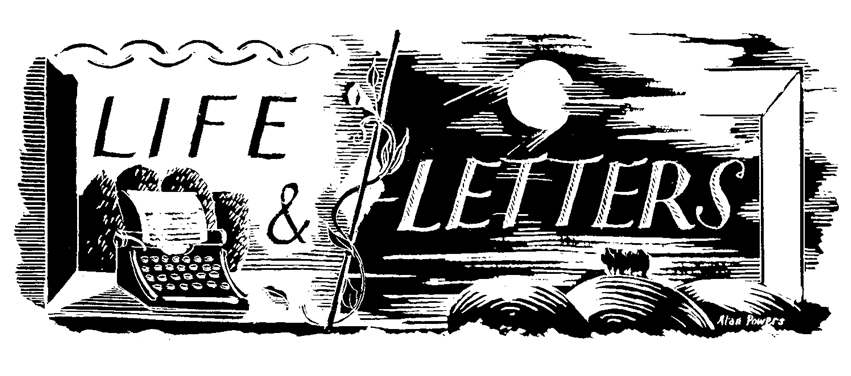It came as a bit of a shock to learn from Philip Hensher’s review of Body of Work: 40 Years of Creative Writing at UEA (31 December) that there are now nearly 100 institutions of higher education in Britain offering a degree in Creative Writing. I suppose for many it’s a merry-go-round. You get the degree and then you get a job teaching Creative Writing to other aspirants who get a degree and then a job teaching … and so it goes. This, after all, has been the way with art colleges for a long time.
I sometimes think I must be one of the few surviving novelists who has neither studied nor taught Creative Writing. I was, admittedly, long ago, a writer-in-residence at a couple of universities, had indeed the title of Creative Writing Fellow at one of them, but there was no Creative Writing course to teach. I was merely expected to make myself available to any students who were sufficiently interested to come and talk about writing with me, even to show me their work and invite comments. So I sat in a room and waited for callers.
At Edinburgh I was fortunate to be approached by some very talented students, among them Ian Rankin, James Meek and Kathleen Jamie. All were studying for degrees in traditional subjects: English Literature, History, Foreign Languages, Philosophy. Our meetings were enjoyable — for me anyway — but I doubt if I was of any great help to them. All would have become the writers they are if they had never met me. Indeed Kathleen Jamie’s poetry had already won her a Gregory Award.
According to Hensher, a good Creative Writing course can
move a gifted but unconscious writer from the point where he says ‘I don’t know — it just seemed to come out like that’ to where he can say, ‘I see how I did this, and how I can do it again in different terms.’
Perhaps it can indeed do this. ‘Writing, particularly of fiction, is’, as he observes, ‘a matter of dense craft. Characters are structured in particular ways.’
Certainly writing fiction is a craft. You have to consider questions like the point of view — though many good novelists have always switched this as seemed convenient to them. You seek to achieve a balance between narrative, dialogue (which should also often be narrative), reflection, description, sometimes analysis. You should ask yourself questions such as ‘What is the purpose of this piece of description?’ or ‘Should this part of the novel move more quickly?’ You should have read widely and considered how novelists you admire have dealt with technical problems.
Yet too much thought can damage spontaneity. Novels are made as much in the unconscious as by the conscious mind.
Hensher’s ‘gifted but unconscious writer’ who said, ‘I don’t know — it just seemed to come out like that’ may have been wiser than his later self who understood how he did it and how he might do it again in different terms. Very often your best strokes are made without thought, and a novel may come to life when a character says or does something you didn’t expect, something which therefore took you, and will take the reader, by surprise.
Reviewing Body of Work Hensher remarks on the number of graduates from the UAE course who did well with a first book, then fell away and faded into oblivion. ‘To sustain a long-term career remains a challenge for any creative programme.’ This is surely an odd way of putting it, for it’s impossible to see how such a programme can do more than set writers on the road. Sustaining a long-term career is their business, not their university’s.
All sorts of things may go wrong, in your life as well as in your art or craft. You may exhaust your material and fail to find suitable new material. You may run out of energy, or succumb to depression or alcoholism. Your publisher may lose faith in you. Your best books may fail to please readers. You may make too much money too soon, or too little ever. But it seems harsh to blame a failure to sustain a career on the inadequacies of a Creative Writing programme.
After half a lifetime of writing novels and after having been lucky enough to have published more than 20, I have learned only two things: that there are certain kinds of novels I can’t write, and that I really don’t know any more about how to write a novel than I did when I embarked on the first one to be published. Indeed I sometimes think I know less.






Comments